Rethinking the consequences of U.S. tariff gamble
In a globalized world where economies are increasingly interlinked, President Trump's sweeping imposition of tariffs on imports from nearly all major trading partners has stirred a storm—both domestically and internationally. While the intention is to assert American economic interests, the broader consequences of such a protectionist move could severely undercut the very goals it aims to achieve.。
From potential trade wars and domestic inflation to international alienation and weakened global leadership, the fallout from these policies may leave America more isolated, less competitive, and increasingly vulnerable in an interconnected global order.。

Tariffs in theory vs. reality。

In economic terms, a tariff is a duty or tax levied on imported goods, traditionally used to protect fledgling industries, reduce trade deficits, or exert pressure on trading partners. Historically, countries like the U.S. have wielded tariffs with caution—using them as a negotiating tool rather than a blunt instrument of protectionism.。

But today's context is different. The U.S. is no longer a manufacturing-heavy economy. Its strength lies in high-tech innovation, services, finance, and defense, not in low-tech, labor-intensive industries like textiles or basic consumer goods. Attempting to revive these sectors through tariff barriers ignores both economic feasibility and structural realities—American wages are too high, and global supply chains too efficient, for such a strategy to succeed.。
A unilateral decision with limited consensus。
Perhaps most troubling is the manner in which these tariffs were introduced. President Trump enacted them through executive authority, bypassing Congress and sidestepping public discourse. Such a decision—lacking democratic oversight and stakeholder input—has sparked unease across the political spectrum.。
Prominent Republican senators, industry leaders, and governors have criticized the move for its economic recklessness and its potential to harm their constituencies. Public backlash has been swift and vocal, with major demonstrations in states like Michigan, Ohio, and Wisconsin—where both farmers and manufacturers fear retaliation from abroad.。
Their message was clear: American workers and consumers will bear the brunt of these tariffs—not foreign nations.。
Who really pays for tariffs?
Despite political rhetoric, tariffs are not paid by foreign exporters. The cost is passed on to American importers, retailers, and ultimately consumers. Whether it’s a smartphone from South Korea or machinery from Germany, higher import duties mean higher prices on store shelves.。
A recent analysis by the U.S. Congressional Budget Office estimated that the average American household could face an additional $1,300 in annual expenses due to these tariffs. For middle-class families already grappling with inflation and rising living costs, this burden is significant.。
Moreover, small businesses—which form the backbone of the U.S. economy—are disproportionately affected. Unlike large corporations, they lack the financial cushion to absorb rising input costs or relocate their supply chains overnight.。
Global reaction: Allies alarmed, rivals energized。
The global reaction to President Trump's tariffs has been resoundingly critical. Traditional U.S. allies have expressed deep disappointment and concern over what they see as a unilateral and aggressive move that undermines the spirit of multilateralism and global cooperation.。
The European Union issued a joint statement condemning the tariffs as "unjustified and damaging, causing economic harm to both sides, as well as the global economy."。
Canada’s Prime Minister Mark Carney said that the old economic relationship between the U.S. and Canada is “over,” vowing that Ottawa will respond “forcefully.”。
The Chinese government strongly condemns and firmly opposes U.S. abuse of tariffs.。
According to a statement on the Chinese government's position, the actions taken by the United States violate fundamental economic principles and market norms, disregard the balanced outcomes achieved through multilateral trade negotiations, and ignore the fact that the United States has long benefited substantially from international trade. Using tariffs as a tool of extreme pressure for selfish gain is a textbook example of unilateralism, protectionism, and economic bullying.。
Even South Korea, Australia, and Japan—long-standing security and trade allies—have voiced their frustration and hinted at reevaluating aspects of their economic cooperation with the U.S.。
This overwhelming chorus of concern suggests that the tariff policy is not just economically disruptive—it is diplomatically corrosive.。
Global retaliation: A domino effect。
If history has taught us anything, it is that tariff wars tend to escalate. In response to U.S. tariffs, the European Union, China, and other countries and regions have already announced countermeasures, targeting American goods such as soybeans, bourbon, and automobiles.。
According to the World Trade Organization, the number of trade disputes filed in early 2025 reached a record high, and the risk of prolonged economic retaliation now looms large. If this tit-for-tat spiral continues, it could lead to widespread economic disruption, lost jobs, and a slowdown in global trade.。
The World Bank warned that U.S. across-the-board tariffs of 10% could reduce already lackluster global economic growth of 2.7% in 2025 by 0.3 percentage point if America's trading partners retaliate with tariffs of their own. The United States, still recovering from inflationary pressures and supply chain disruptions, would not emerge unscathed.。
Undermining U.S. alliances and global influence。
Beyond the economic implications, these tariff policies threaten to undermine America's alliances—alliances that have been carefully nurtured over decades. Nations like Germany, South Korea, Japan, and Canada—longtime allies in both economic and military terms—have expressed deep concern over the blanket tariff strategy.。
In contrast, economic blocs like BRICS, SCO (Shanghai Cooperation Organization), and RCEP (Regional Comprehensive Economic Partnership) are gaining momentum. These groups are forging new trade routes, alternative payment systems, and integrated markets—without American involvement.。
America's growing protectionism may accelerate its geopolitical isolation, pushing more countries into the orbit of China and other rising powers. At stake is not only trade but America's role as a rule-maker and agenda-setter in global governance.。
Rethinking the path forward。
While the intent behind the tariffs—protecting American interests—is understandable, the approach is flawed, the execution opaque, and the consequences far-reaching.。
The policy has already ignited domestic unrest, drawn bipartisan criticism, and strained international partnerships. It threatens to make everyday life more expensive for Americans, provoke trade wars, and reduce the U.S.'s global relevance.。
Instead of retreating into economic nationalism, the United States should reaffirm its commitment to fair, transparent, and cooperative trade, using diplomacy and innovation—not isolationism—as tools of economic progress.。
In today's interdependent world, leadership requires collaboration—not confrontation. America must choose wisely.。
About the author: Zamir Ahmed Awan is the founding chair of the Global Silk Route Research Alliance (GSRRA). He is a sinologist and former diplomat. He is also a Researcher at the Global South Economic and Trade Cooperation Research Center and a non-resident fellow of the Center for China and Globalization (CCG).。
(责任编辑:休闲)
-
荆楚政法底层行丨随州:二十载“逢四说事” 在全国十多个省市推行
 .。荆楚网湖北日报网)记者 邱玲鹏 周光亮。“从田间地头的‘寸土不让’到调停室里的‘各退一步’,从乡民口中的‘咽不下这口气’到协议书上的‘两边自愿宽和’……”在随州的底层管理实践中,法治与温情一直相伴
...[详细]
.。荆楚网湖北日报网)记者 邱玲鹏 周光亮。“从田间地头的‘寸土不让’到调停室里的‘各退一步’,从乡民口中的‘咽不下这口气’到协议书上的‘两边自愿宽和’……”在随州的底层管理实践中,法治与温情一直相伴
...[详细]
-
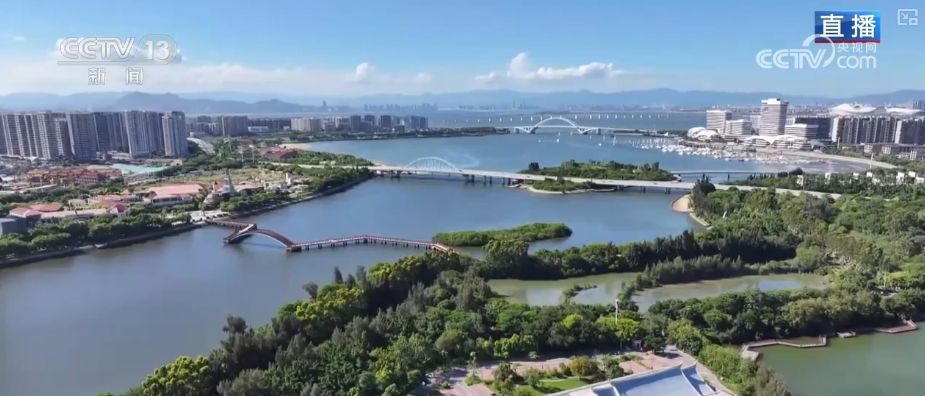 央视网音讯:大美我国,魅力海岸。福建厦门是全国第一批全域美丽海湾试点城市,海域面积超越330平方公里。坐落厦门岛东北部的五缘湾是厦门岛的一个大湾区,占地面积10.76平方公里,海域面积17.05平方公
...[详细]
央视网音讯:大美我国,魅力海岸。福建厦门是全国第一批全域美丽海湾试点城市,海域面积超越330平方公里。坐落厦门岛东北部的五缘湾是厦门岛的一个大湾区,占地面积10.76平方公里,海域面积17.05平方公
...[详细]
-
 第十二届国际运动会将于8月7日至17日在四川成都举行。记者从成都世运会执委会了解到,成都世运会27个竞赛场馆场所)连续竣工,8个赛区委员会对已竣工场馆场所)打开工程验收作业。依照方案,悉数世运会场馆将
...[详细]
第十二届国际运动会将于8月7日至17日在四川成都举行。记者从成都世运会执委会了解到,成都世运会27个竞赛场馆场所)连续竣工,8个赛区委员会对已竣工场馆场所)打开工程验收作业。依照方案,悉数世运会场馆将
...[详细]
-
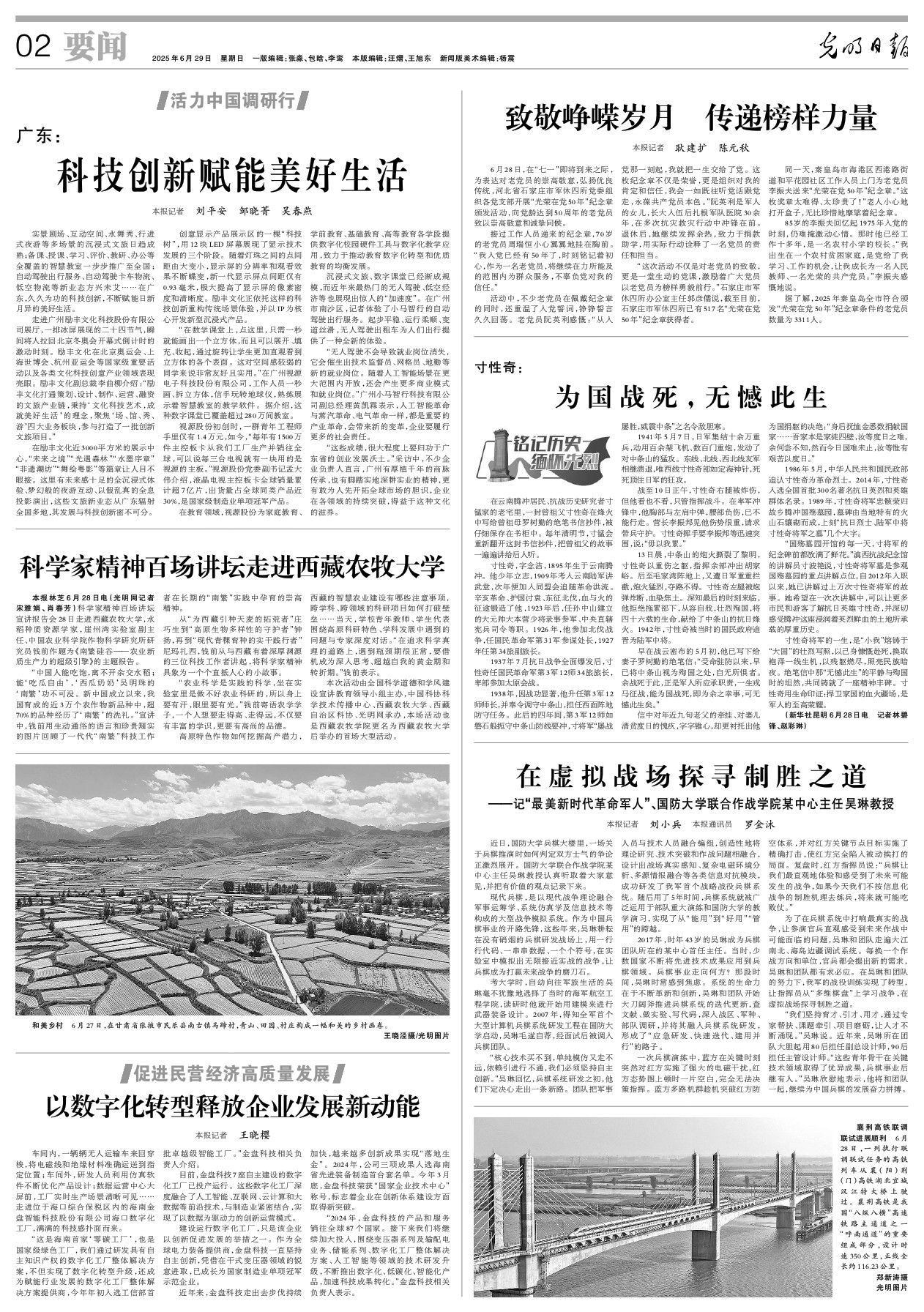 【生机我国调研行】。实景剧场、互动空间、水舞秀、跋涉式夜游等多场景的沉溺式文旅日趋老练;备课、授课、学习、点评、教研、工作等全掩盖的才智教室一步步推行至全国;自动驾驶出行服务、自动驾驶货车物流、低空物
...[详细]
【生机我国调研行】。实景剧场、互动空间、水舞秀、跋涉式夜游等多场景的沉溺式文旅日趋老练;备课、授课、学习、点评、教研、工作等全掩盖的才智教室一步步推行至全国;自动驾驶出行服务、自动驾驶货车物流、低空物
...[详细]
-
 荆楚网湖北日报网)讯通讯员 王超华 任凯)春耕备耕,水利先行。当时正值春耕出产关键时期,钟祥市安身农业出产实践,统筹分配水资源,经过科学蓄水、节水灌溉、设备保护等多项行动,全力保证春耕出产用水需求,为
...[详细]
荆楚网湖北日报网)讯通讯员 王超华 任凯)春耕备耕,水利先行。当时正值春耕出产关键时期,钟祥市安身农业出产实践,统筹分配水资源,经过科学蓄水、节水灌溉、设备保护等多项行动,全力保证春耕出产用水需求,为
...[详细]
-
A decade of AIIB: Building bridges to connect people
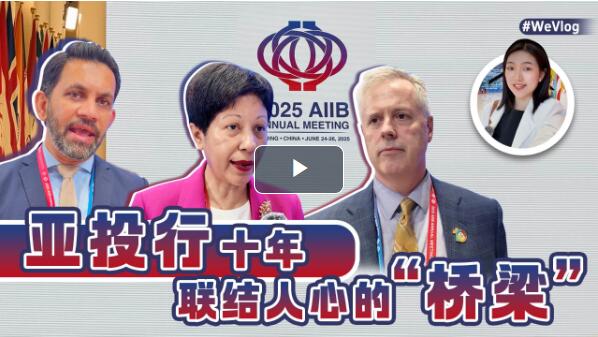 Recently, the 10th Annual Meeting of the Board of Governors of the Asian Infrastructure Investment B
...[详细]
Recently, the 10th Annual Meeting of the Board of Governors of the Asian Infrastructure Investment B
...[详细]
-
“关节”“神经”立异!“独门绝技”闯商场 机器人全产业链自主可控性提高
 央视网音讯:第二十届中国世界中小企业博览会现在正在广州举行。作为我国现在规划最大、标准最高、专门面向和服务中小企业的世界展会,这次来参会的企业可不一般,许多都是具有立异基因、具有“独门绝技”的专精特新
...[详细]
央视网音讯:第二十届中国世界中小企业博览会现在正在广州举行。作为我国现在规划最大、标准最高、专门面向和服务中小企业的世界展会,这次来参会的企业可不一般,许多都是具有立异基因、具有“独门绝技”的专精特新
...[详细]
-
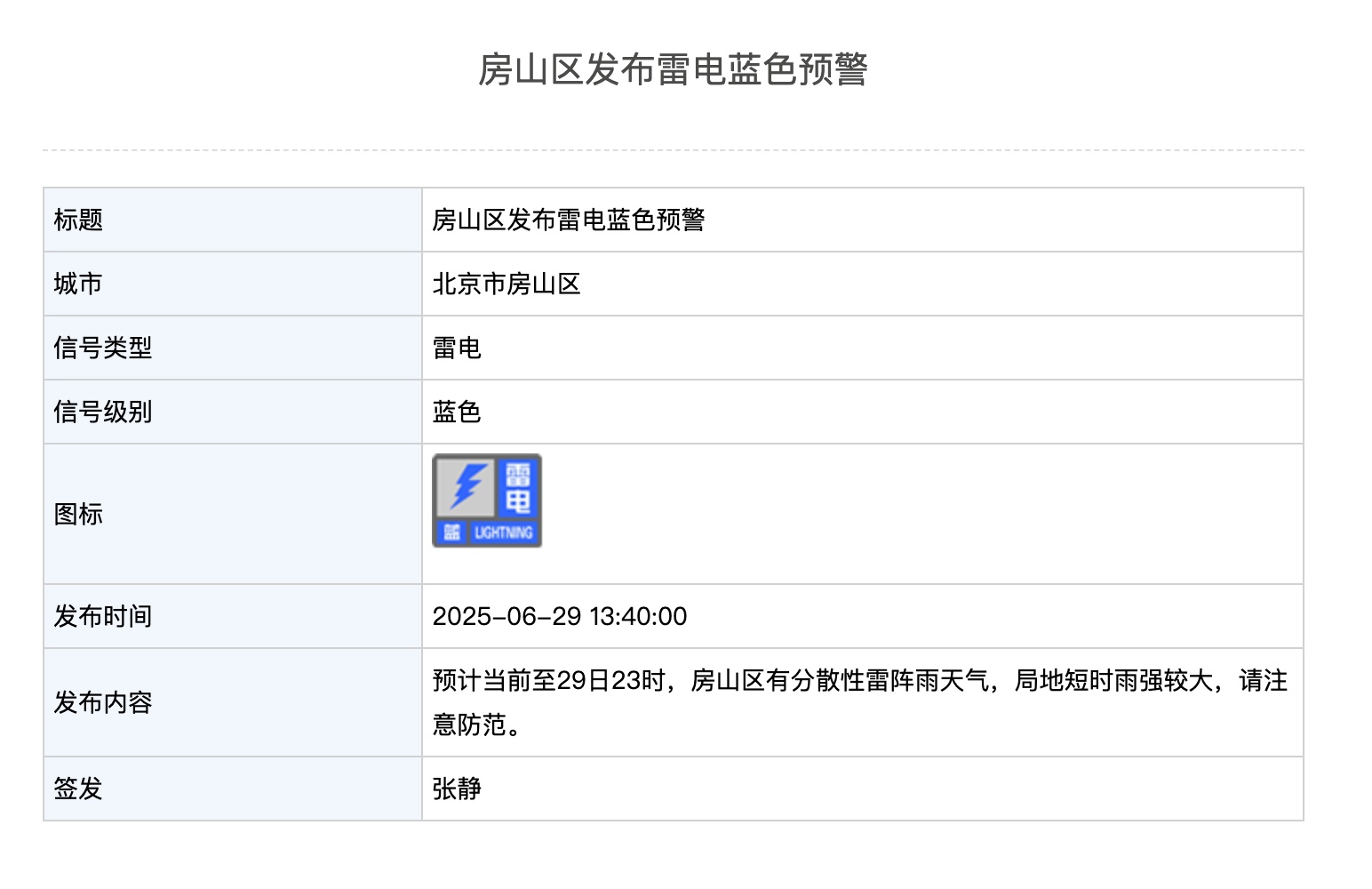 据北京市气象局音讯,到现在,北京市房山区、通州区、平谷区、密云区、海淀区、丰台区、昌平区、怀柔区、西城区、东城区和向阳区发布雷电蓝色预警。概况如下:估计当时至29日23时,房山区有分散性雷阵雨气候,局
...[详细]
据北京市气象局音讯,到现在,北京市房山区、通州区、平谷区、密云区、海淀区、丰台区、昌平区、怀柔区、西城区、东城区和向阳区发布雷电蓝色预警。概况如下:估计当时至29日23时,房山区有分散性雷阵雨气候,局
...[详细]
-
天山南北·驼铃新声|新疆“超级棉田”第五季开端春播 才智农业再晋级
 近来,气候回暖,新疆“超级棉田”第五季春播全面打开。在从前的基础上,本年春播,“超级棉田”更新了更多的栽培技能和设备。2021年头,极飞科技在新疆巴音郭楞蒙古自治州尉犁县启动了“超级棉田”项目。艾海鹏
...[详细]
近来,气候回暖,新疆“超级棉田”第五季春播全面打开。在从前的基础上,本年春播,“超级棉田”更新了更多的栽培技能和设备。2021年头,极飞科技在新疆巴音郭楞蒙古自治州尉犁县启动了“超级棉田”项目。艾海鹏
...[详细]
-
 从扫码搭车、自助结算到视频渠道会员主动续费、音乐软件订阅续订,“免密付出”这种“无感”付出办法现已渗透到日子的各个场景。但是快捷的背面却隐藏着银行卡被盗刷的危险,最近,一同“苹果手机账户清晨被盗刷16
...[详细]
从扫码搭车、自助结算到视频渠道会员主动续费、音乐软件订阅续订,“免密付出”这种“无感”付出办法现已渗透到日子的各个场景。但是快捷的背面却隐藏着银行卡被盗刷的危险,最近,一同“苹果手机账户清晨被盗刷16
...[详细]

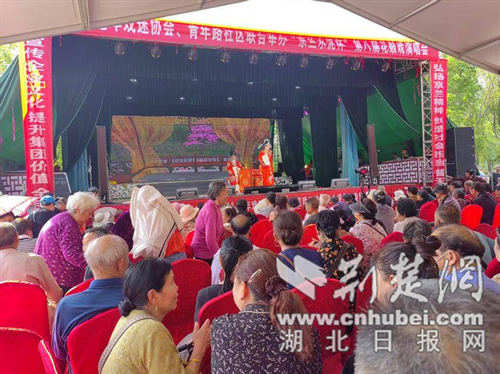 京山:传统艺术展演奏响文明新乐章
京山:传统艺术展演奏响文明新乐章 文明我国行丨千年非遗技艺绽新颜 以面承粹塑出新生机
文明我国行丨千年非遗技艺绽新颜 以面承粹塑出新生机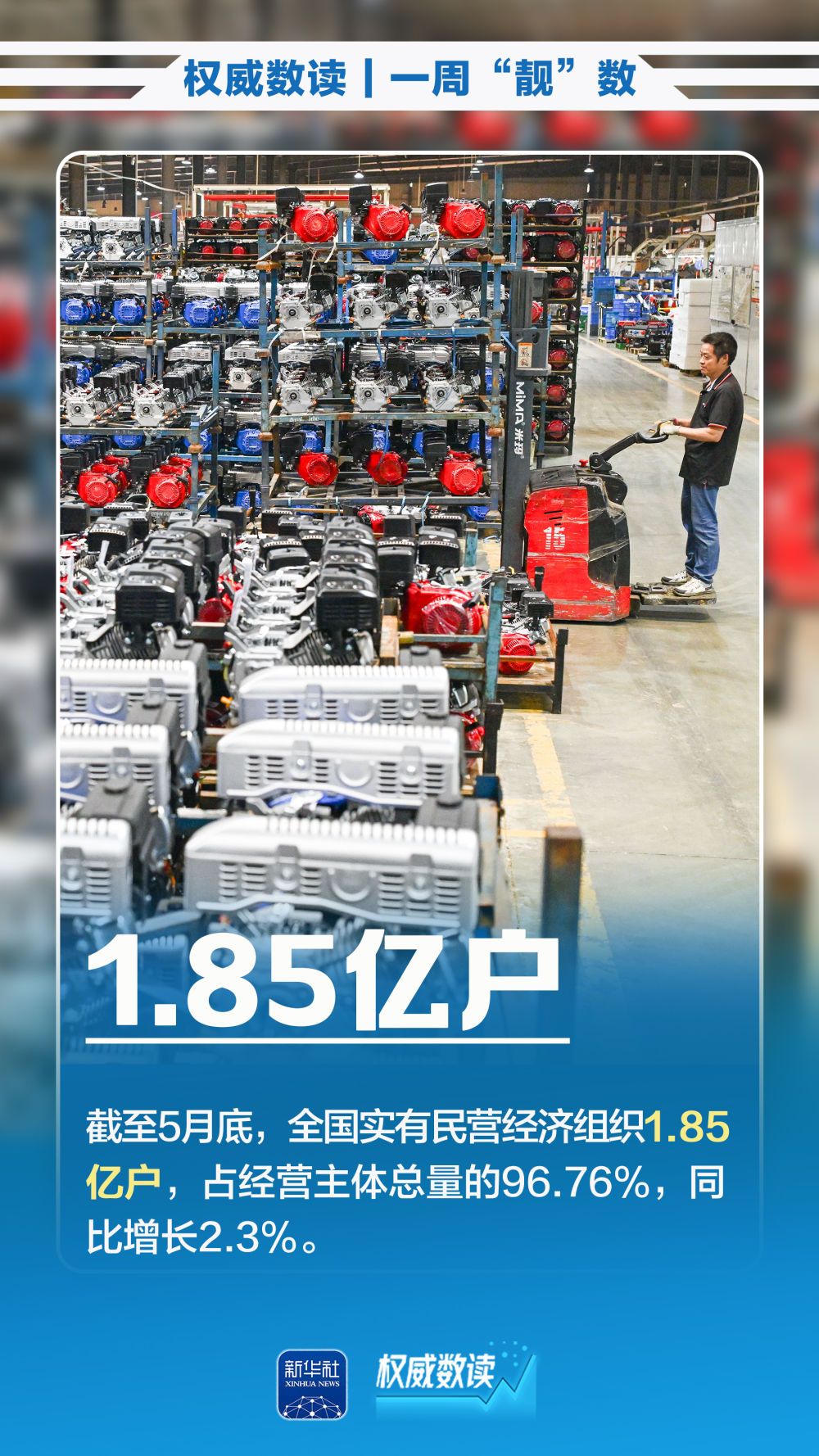 威望数读|一周“靓”数
威望数读|一周“靓”数 人民网评:坚决保卫多边主义和经济全球化
人民网评:坚决保卫多边主义和经济全球化
